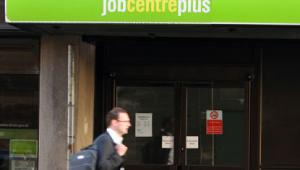By Vivienne Russell | 23 October 2013
The benefit cap will struggle to fulfil its two main objectives of saving public money and encouraging people into work, the Chartered Institute of Housing said today as it published the results of the first major study of the policy.
Researchers examined the initial impact of the cap in Haringey, one of four London boroughs chosen to introduce the measure early in April this year.
The cap limits the amount of benefits that can be claimed to £500 a week for families with children and £350 a week for those without children.
A total of 747 households in Haringey had their benefits cut as a result of the cap, but of these just 10% were able to find work to avoid the cap.
Amounts lost among those whose incomes were cut ranged from 15p to £374.50 per week. Half (51%) of affected claimants lost between £50 and £199 a week.
Around 2,300 children were affected by the cap, with larger families hardest hit. Just over of a third (35%) of affected households had four or more children.
The research also found that almost half of the capped households claimed Discretionary Housing Payments from the council to help with rent costs. This shunts costs between national and local government budgets and masks the true impact of the cap until those payments are exhausted, the CIH said.
CIH chief executive Grainia Long said: ‘The government said the benefit cap would save money and encourage people into work, but this report shows it is far from achieving both of those aims in one of the worst-affected areas.
‘There have been whispers that the government is considering lowering the cap or increasing the amount of hours people must work to avoid it. Unless ministers committee to increasing support for people looking to get back into work and funding for childcare this would be very dangerous.’
Findings from in-depth interviews with affected claimants and advisors also showed that: marginalised groups were disproportionately affected; reductions to council tax support hit at the same time further reducing household incomes; and there was little evidence of tenants being able to renegotiate rents with private landlords. Three private landlords had already evicted tenants in response to the cap.
Claire Kober, leader of Haringey Council, said: ‘Only a few households have been able to get back into work and, while the government may be making some savings, the real costs are just being passed to local councils already under enormous financial pressure.
‘People still need a lot of support to get training or back into work and spiralling housing costs mean there is a long way to go before anyone could claim the benefit cap is working.’
But the Department for Work and Pensions dismissed the findings saying it did not provide a sound or reliable picture of the reform.
A DWP spokeswoman said: ‘This research relies on early and limited data from a single council and completely ignores the fact Jobcentre Plus has helped 16,500 claimants nationally into work who were potentially affected by the benefit cap.’





















